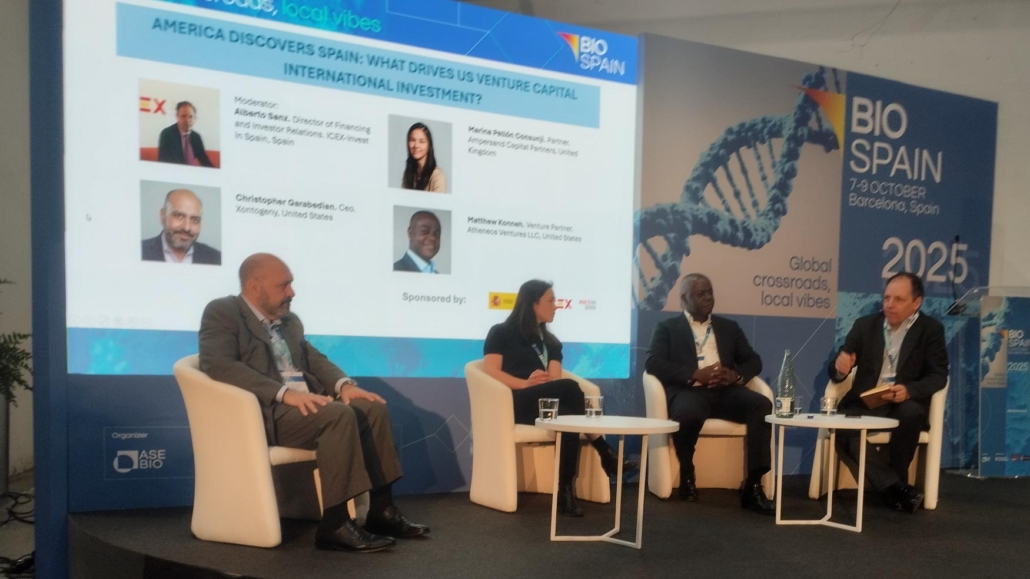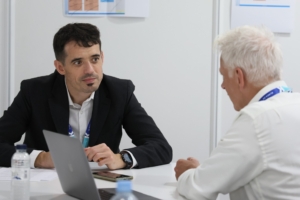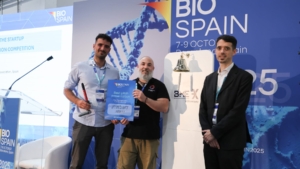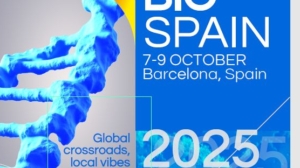
Panel discussion: what drives US investments?
Alongside a start-up pitch featuring 45 international participants, the second day of BioSpain 2025 (7–9 October 2025, Barcelona) offered biotech start-ups a panel discussion with prominent US investors, who shared their selection criteria and outlined the impact of the current geopolitical situation on investment decisions.
“In general, US investors do not focus on geography but on technology and uniqueness,” explained Christopher Garabedian, CEO of Xontogeny, a Boston-based life-sciences accelerator that co-founded the early-stage Perceptive Xontogeny Venture Funds. “We are simply looking for the best technologies, regardless of the company’s location. With valuations having come down, we are seeking productive investments.”
According to Garabedian, European start-ups benefit from being cheaper than their US counterparts while often offering high productivity. Thus it is easier for them to achieve 3–5-times higher valuation than the investment when exiting. The Perceptive Xontogeny Venture Funds typically invests between US$0.5–7m, with consortium rounds up to US$200m.
Marina Pellón Consunji, Partner at Ampersand Capital Partners (Boston), explained that her firm, which provides mid-stage financing between US$20–200m, invests 40% of its capital in Europe due to the favourable value proposition.
Indeed, European start-ups are, on average, 40-50% cheaper than their US- equivalents. Countries such as Germany, the UK, Belgium, Sweden, and the Netherlands offer excellent research infrastructure and are leaders in mRNA, genomics, and cell therapy research. The appeal, therefore, lies in the gap between lower acquisition costs and the potential for high-value Nasdaq exits or licensing deals.
Dr Matthew Konneh, Venture Partner at California-based Atheneos Ventures LLC, emphasised that strong science and its translation into a differentiated therapeutic are two entirely different challenges. “That is why we pair biotech founders with experienced CEOs to maximise the low success rate of preclinical-to-clinical transition and commercialisation.” Atheneos provides biotech financing tranches between US$2.5–10m.
Garabedian described the ongoing debates around tariffs and price reductions in the US as “interesting and dynamic.” While tariffs have had a generally negative effect, Pfizer’s voluntary price cuts were welcomed enthusiastically by the Nasdaq. “Many US- and also EU- biotech companies rely on Chinese service providers, who can conduct clinical trials twice as fast and at 40–50% lower cost than in the US,” noted Konneh. With Big Pharma increasingly investing in Chinese biotech, the market is shifting from an investor perspective, Garabedian told European Biotechnology. He advised that innovative companies with differentiated products should carefully consider whether to conduct pre-IND trials in China, due to the persistent risk of know-how leakage inherent in such arrangements.


 Asebio - Miguel Méndez
Asebio - Miguel Méndez AseBio
AseBio  AseBio
AseBio